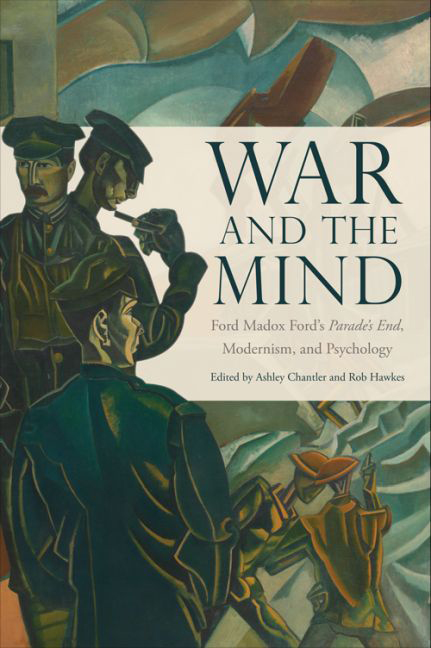Book contents
- Frontmatter
- Contents
- Acknowledgements
- Introduction
- 1 ‘Sex ferocity’ and ‘the sadic lusts of certain novelists’: Sexuality, Sadomasochism, and Suppression in Parade's End
- 2 Freud Madox Ford: Impressionism, Psychoanalytic Trauma Theory, and Ford's Wartime Writing
- 3 Empathy, Trauma, and the Space of War in Parade's End
- 4 Fellow Feeling in Ford's Last Post: Modernist Empathy and the Eighteenth-Century Man
- 5 The Self-Analysis of Christopher Tietjens
- 6 Composing the War and the Mind; Composing Parade's End
- 7 The Work of Sleep: Insomnia and Discipline in Ford and Sassoon
- 8 Representing Shell Shock: A Return to Ford and Rebecca West
- 9 ‘I hate soldiering’: Ford, May Sinclair, and War Heroism
- 10 Peace of Mind in Parade's End
- Notes on Contributors
- Bibliography
- Index
5 - The Self-Analysis of Christopher Tietjens
Published online by Cambridge University Press: 15 September 2017
- Frontmatter
- Contents
- Acknowledgements
- Introduction
- 1 ‘Sex ferocity’ and ‘the sadic lusts of certain novelists’: Sexuality, Sadomasochism, and Suppression in Parade's End
- 2 Freud Madox Ford: Impressionism, Psychoanalytic Trauma Theory, and Ford's Wartime Writing
- 3 Empathy, Trauma, and the Space of War in Parade's End
- 4 Fellow Feeling in Ford's Last Post: Modernist Empathy and the Eighteenth-Century Man
- 5 The Self-Analysis of Christopher Tietjens
- 6 Composing the War and the Mind; Composing Parade's End
- 7 The Work of Sleep: Insomnia and Discipline in Ford and Sassoon
- 8 Representing Shell Shock: A Return to Ford and Rebecca West
- 9 ‘I hate soldiering’: Ford, May Sinclair, and War Heroism
- 10 Peace of Mind in Parade's End
- Notes on Contributors
- Bibliography
- Index
Summary
Throughout Parade's End, Christopher Tietjens continuously monitors and reflects on his thoughts and mental fitness. Tietjens enjoys his intellectual prowess in performing complex statistical calculations and in synthesising scattered bits of information. In Some Do Not …, he even refers to himself as ‘more brain than body’. In addition, Tietjens administers careful control over his affective responses, so he adopts a policy of not talking or thinking about unpleasant events, such as his wife's infidelity. In addition, he regulates how his neurological system deals with shock by waiting to confront the event until his mind can handle it calmly. Tietjens models his character on his ideal, an English gentleman, and carefully monitors his habits to shape his behaviour accordingly. His intense preoccupation with his mental processes reveals the tetralogy's engagement with William James's theories on selective consciousness and free will. In addition, the anxiety he expresses over his sanity as well as his experiences with trauma and repression suggest the text's negotiation with psychoanalytic theories of the unconscious mind. Through his continual introspective investigations, Tietjens performs an insightful self-analysis on his conscious and unconscious processes.
As T. J. Henighan argues, the ‘dramatizing of Tietjens’ inner consciousness is the great achievement’ of Parade's End. Throughout the majority of the first three books in the tetralogy, Ford places the reader in Tietjens’ mind. This technique not only allows readers to view the action from Tietjens’ perspective, but also gives an intimate portrait of his emotional reactions and potential psychological problems. Ford, however, extends this technique far beyond a simple representation of Tietjens’ point of view to an examination of Tietjens’ consciousness at work. Tietjens’ thoughts reveal not only an acute self-awareness of his own consciousness, but also an almost obsessive need to monitor and control his thoughts and feelings.
- Type
- Chapter
- Information
- War and the MindFord Madox Ford's Parade's End, Modernism, and Psychology, pp. 77 - 91Publisher: Edinburgh University PressPrint publication year: 2015



